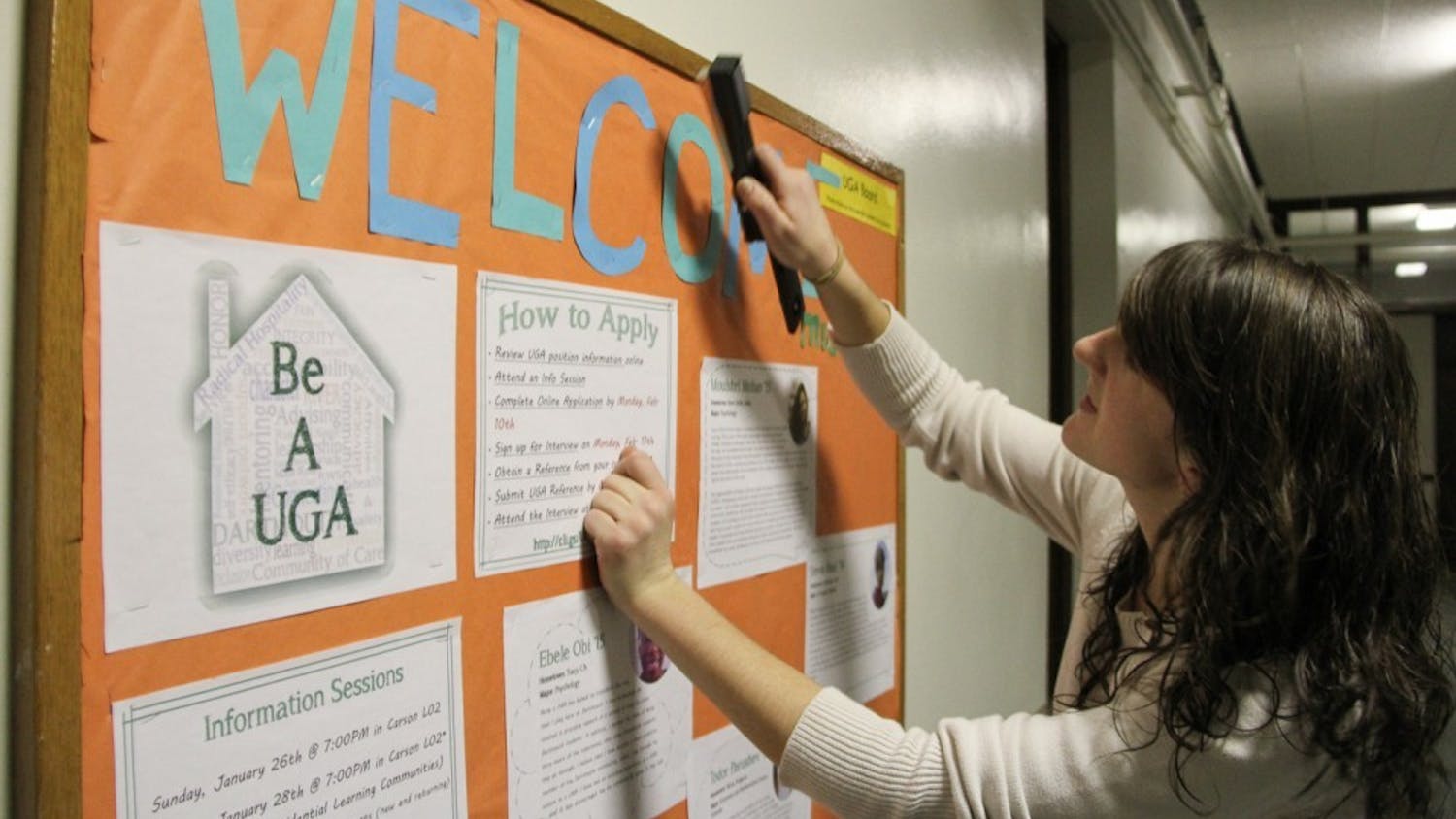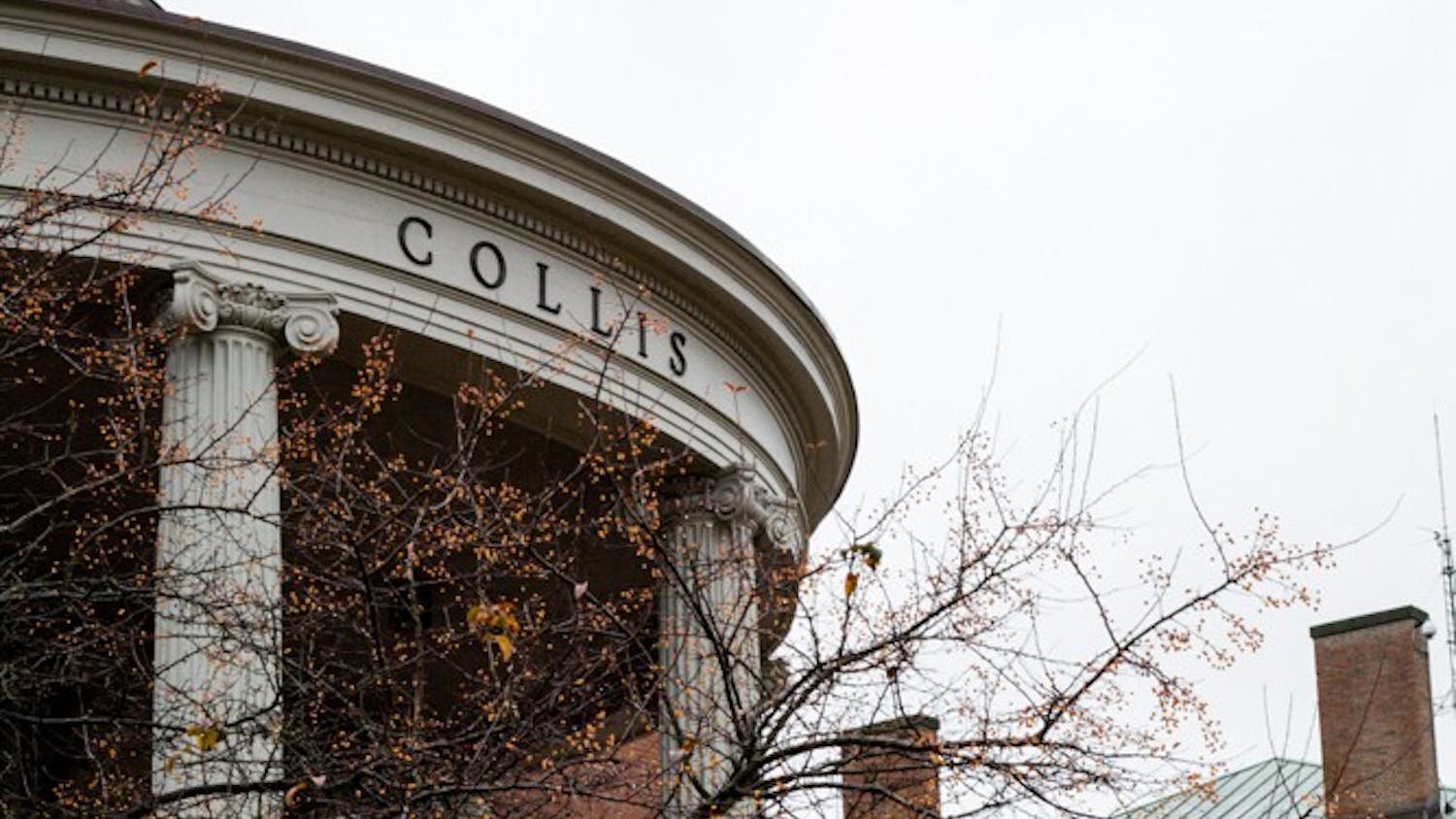A group of students are currently seeking to discredit recommendations to change the College's judicial system proposed by a Student Assembly-commissioned task force in fall 2006. Renewed consideration for raising the burden of proof and allowing direct questioning in Committee on Standards judicial proceedings has reinvigorated a debate about the effect of these proposed changes on cases of sexual assault at the College.
The task force's recommendations will be among the proposals considered by a COS review committee convened by former Acting Dean of the College and current Senior Associate Dean Dan Nelson in fall 2007. Nelson delayed the creation of this review committee in 2006. Nelson told The Dartmouth at that time that the issue should be addressed by a permanent dean.
The committee will submit its proposal to Dean of the College Tom Crady at the beginning of Spring term.
In their report, the Assembly task force recommended raising the burden of proof required in COS judicial hearings from "a preponderance of evidence" to "clear and convincing evidence" and allowing accused students to directly question their accusers. Some students have questioned whether these two proposed changes would deter students who experience sexual assault from reporting these incidents.
"By raising the standard of evidence, it's like revictimizing the students, and it will make it less likely for students to report those kinds of things to the school," Alicia Driscoll '11 said. "There's just so little reporting that making it easy and comfortable for students to report issues to the school will make it a more accessible process."
To combat the Assembly's proposed changes, Sexual Abuse Peer Advisors are circulating a letter around campus for students to sign and return to Acting Associate Dean of the College Katherine Burke. The letter indicates that increasing the burden of proof is targeted at sexual assault cases and states that "because the COS lacks the authority to gather evidence, demanding more than testimony is incompatible with a higher standard of proof."
"SAPAs have been encouraged to be vocal," Andrea Palmer '08, a SAPA, said. "I think the cards are already so stacked against women who have been sexually assaulted at Dartmouth, and this is just another hurdle for them to overcome."
The recommendations from the Assembly task force are among a large volume of recommendations being considered by the review committee, which is composed of three faculty members, three administrators and three students, Director of Undergraduate Judicial Affairs April Thompson and Burke said in a joint interview with The Dartmouth.
"We do have the [Assembly] task force which put forth one set of recommendations," Burke said. "There are a lot of people who have questions or suggestions about how people are sanctioned for violating the code of conduct or the academic honor principle. We're hearing from individual students and faculty in the community and are interested in getting as much feedback as possible."
The controversy over the task force's proposed changes is a result of the fact that cases of academic dishonesty and sexual assault are prosecuted under the same system at the College, said Michael Herman '07, who served on the Assembly-commissioned task force.
"It seems a little strange that Dartmouth has the same system for plagiarism and sexual assault, which is an extraordinarily serious crime," Herman said. "I wouldn't be opposed to having two different systems."
Herman defended the Assembly's proposals, emphasizing that the changes will ensure that all cases brought forward by the College are handled fairly.
"We just didn't think the community would be comfortable suspending or expelling someone from school on this paltry 51 percent standard," he said in reference to the current "preponderance of the evidence" standard.
Although Herman and other members of the Assembly task force had hoped to be involved in the review committee's deliberations, the delay in convening the committee meant that many of the students on the task force had graduated, Herman said.
The review committee is also seeking feedback on other issues relating to the judicial affairs process at the College, Burke said. These issues include the ease with which the judicial process can be understood and the support system available to students dealing with the judicial process.
Burke said the committee has not yet started deliberations and that the committee's recommendations will depend largely on the amount and diversity of feedback given to UJA.
Students can submit feedback via a COS review Blitz account, Burke said, adding that she and Thompson are attending meetings of groups like the Assembly, Palaeopitus and the Intercommunity Council to gain additional student feedback.
Driscoll, however, said that she is worried concerned students will not have an impact on the committee's eventual proposal. After hearing about the task force's recommendations, Driscoll met with UJA faculty and has begun writing a letter to the COS Review Committee.
"It's difficult to get your voice heard, particularly because people are focusing more on the rights of the accused student," she said. "But at the same time, we can get wrapped up on that and forget the impact it has on someone who is going to the COS and trying to pursue a case."
Francesca Bochner '10 said she appreciates the UJA's efforts to include student opinions but believes that efforts are focusing on a small portion of the undergraduate population.
"I think they're going out of their way to include students here, which is wonderful," Bochner said. "But I feel like anything that is going to COS review should have been Blitzed out to the whole campus. There seems to be a disconnect between the small few who make decisions and then the rest of the campus."



